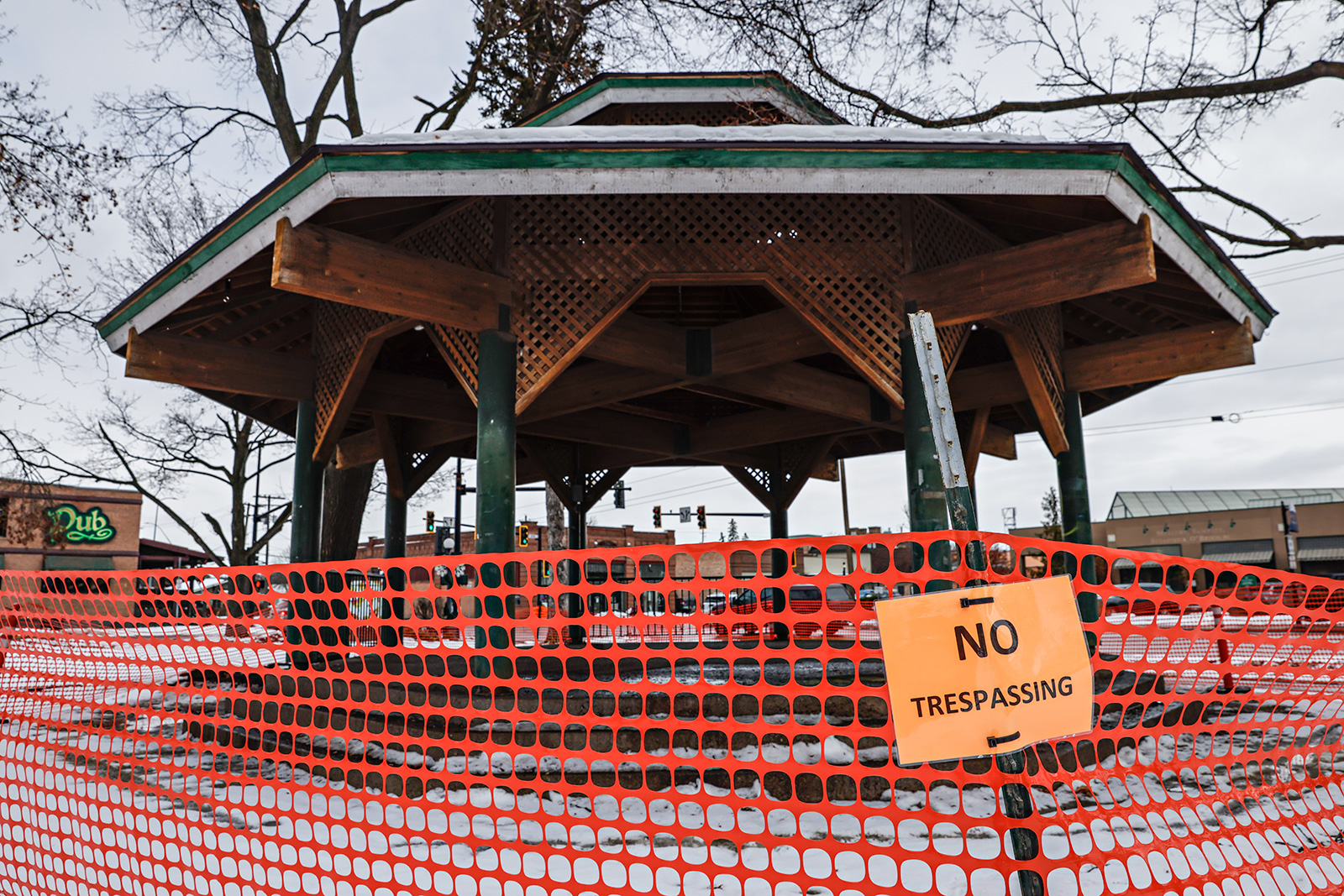Kalispell Approves Ordinances to Limit Structure Occupancy in Parks
The newly adopted ordinances prohibit personal items and structures in public facilities and limit a person’s occupancy to 150 minutes
By Maggie Dresser
In response to the chronic encampment of homeless people in downtown Kalispell’s Depot Park gazebo, which prompted a slew of complaints to city officials, the Kalispell City Council on Feb. 6 approved three ordinances designed to limit occupancy in public parks facilities. The newly adopted ordinances prohibit personal items within public facilities, prohibit the erection of personal structures in parks and limit a person’s occupancy to 150 minutes in a covered structure.
City officials temporarily closed the gazebo last month, citing health and safety concerns.
Ordinance 1899 will make it unlawful to place, sort or maintain personal property at public facilities outside of a special event or reservation, “so as not to interfere with another’s use of public property.” The ordinance passed in a 6-2 vote with councilors Ryan Hunter and Sid Daoud in opposition.
According to that ordinance, the rule is intended to prevent “excessive personal property” storage to maintain clean and sanitary public spaces and to ensure it is in good condition for the next user. The city has confirmed that individuals have regularly left human waste, trash and belongings in the Depot Park gazebo, which is later cleaned up by law enforcement and city staff. There have also been reports of criminal activity, alcohol consumption and nudity within the gazebo.
Councilor Hunter was concerned that the ordinance is too vague and would have consequences for all park users.
“I’m also concerned of the impact of this ordinance outside of what we’ve seen at Depot Park. I think we all want a space that our kids can be safe in and not see the things going on there but outside of that, this is going to be on the books,” Hunter said.
Also passed in a 6-2 vote with Hunter and Daoud in opposition, ordinance 1900 will limit the assembly of structures in city parks but will not include municipal installations or special event installations and displays.
According to the rule, tents, lodges, shelters, structures, installations or displays will be prohibited from public parks. Municipal and permitted event installations and displays are exempt.
Councilor Daoud was concerned that park users setting up sun shields would be impacted by the ordinance.
“I still have issues with this because I have seen sun shields being used … I do understand that there is an issue if you’re pounding stuff into the ground. Out of these three ordinances, I think this has the least effect if it’s put in place,” Daoud said.
Passed unanimously, the ordinance 1901 will cap the amount of time a party can occupy a covered park structure to 150 minutes, unless they secure a permit for extended use. The ordinance was amended during the meeting from 90 minutes. Users would not be required to leave the park, but they would be prohibited from taking “all day possession of a single structure, such as a gazebo, and provide for a more equitable use across the public for park amenities.”
The rule is intended to reduce the likelihood of criminal activity within covered structures.
During public comment, four people spoke with divided views on the issue compared to the dozens of commenters during the work session two weeks prior.
Kalispell resident Sean Pandina was opposed to the ordinances but said authorities should enforce laws that are already “on the books.” He offered suggestions like crafting ordinances that prohibit panhandling.
“We the people do not need more restrictions,” Pandina said. “What we need is for our police force to hold accountable the criminals that are currently breaking laws.”
Sean O’Neill, of Community Action Partnership of Northwest Montana, also spoke in opposition, saying the ordinances would likely be ineffective and that the city needed to find alternative solutions to solving homelessness.
Josh Newsted spoke during public comment in support of the ordinances, calling the situation an “embarrassment.”
“This has become a debacle,” he said. “That’s why we are all meeting here to advocate for the status quo.”
To close out the meeting, Mayor Mark Johnson told the council that the ordinances were never intended to solve homelessness, and he supported long-term state funding for mental health and addiction treatment.